
第 1 页 / 共 11 页
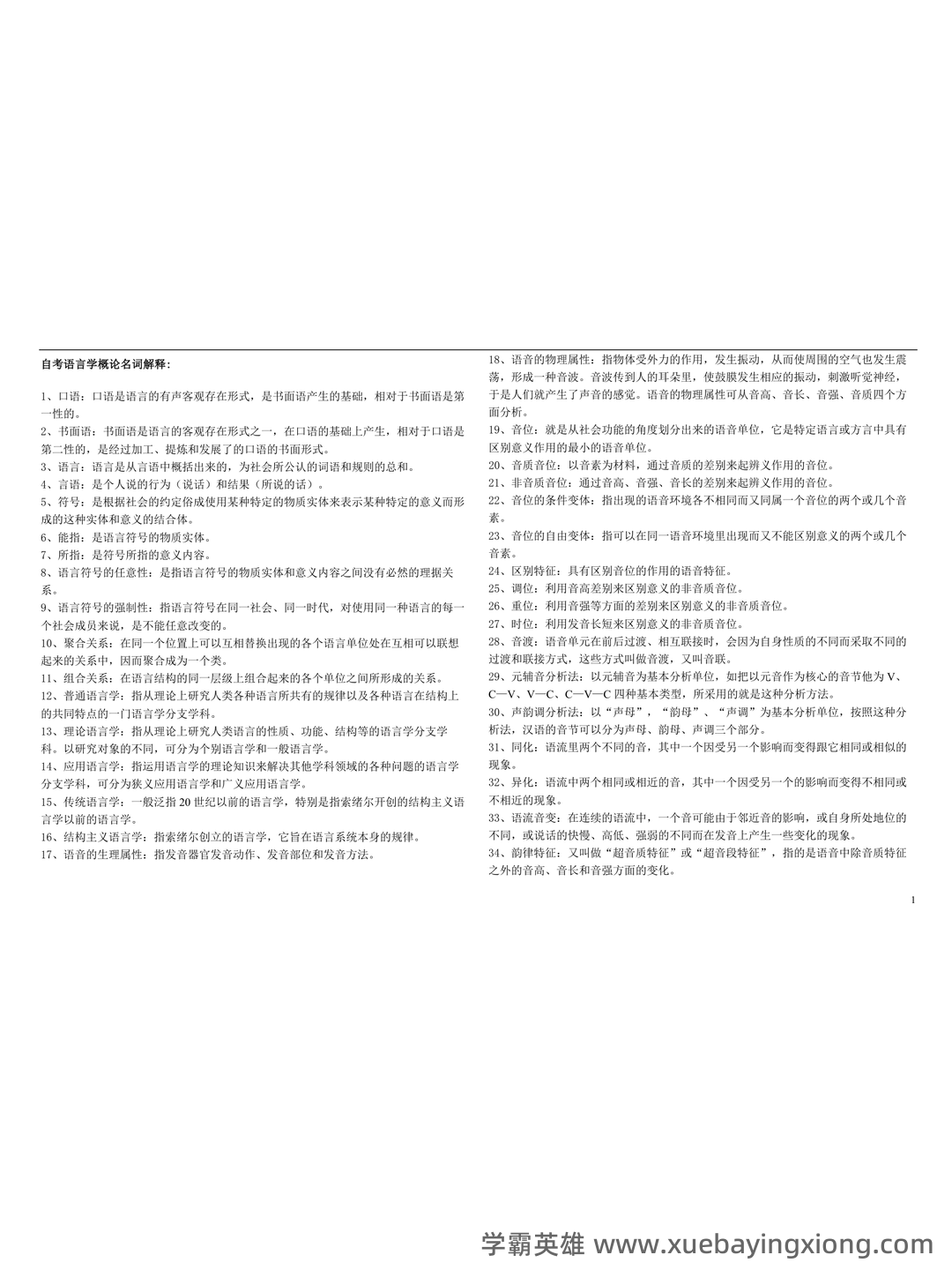
第 2 页 / 共 11 页
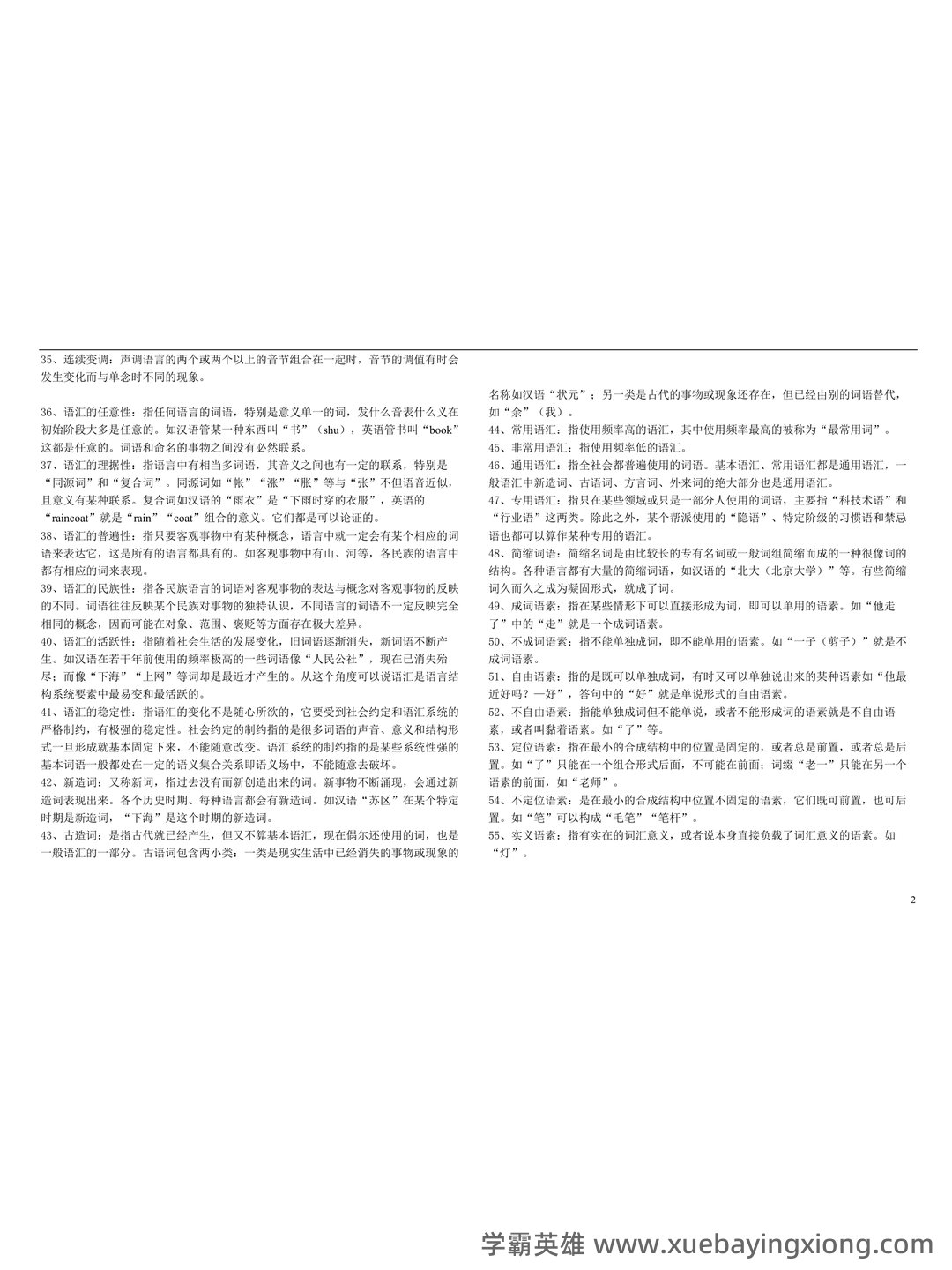
第 3 页 / 共 11 页
_第1页_学霸英雄_www.xuebayingxiong.com.png)
第 4 页 / 共 11 页
_第2页_学霸英雄_www.xuebayingxiong.com.png)
第 5 页 / 共 11 页
_第1页_学霸英雄_www.xuebayingxiong.com.png)
第 6 页 / 共 11 页
_第2页_学霸英雄_www.xuebayingxiong.com.png)
第 7 页 / 共 11 页
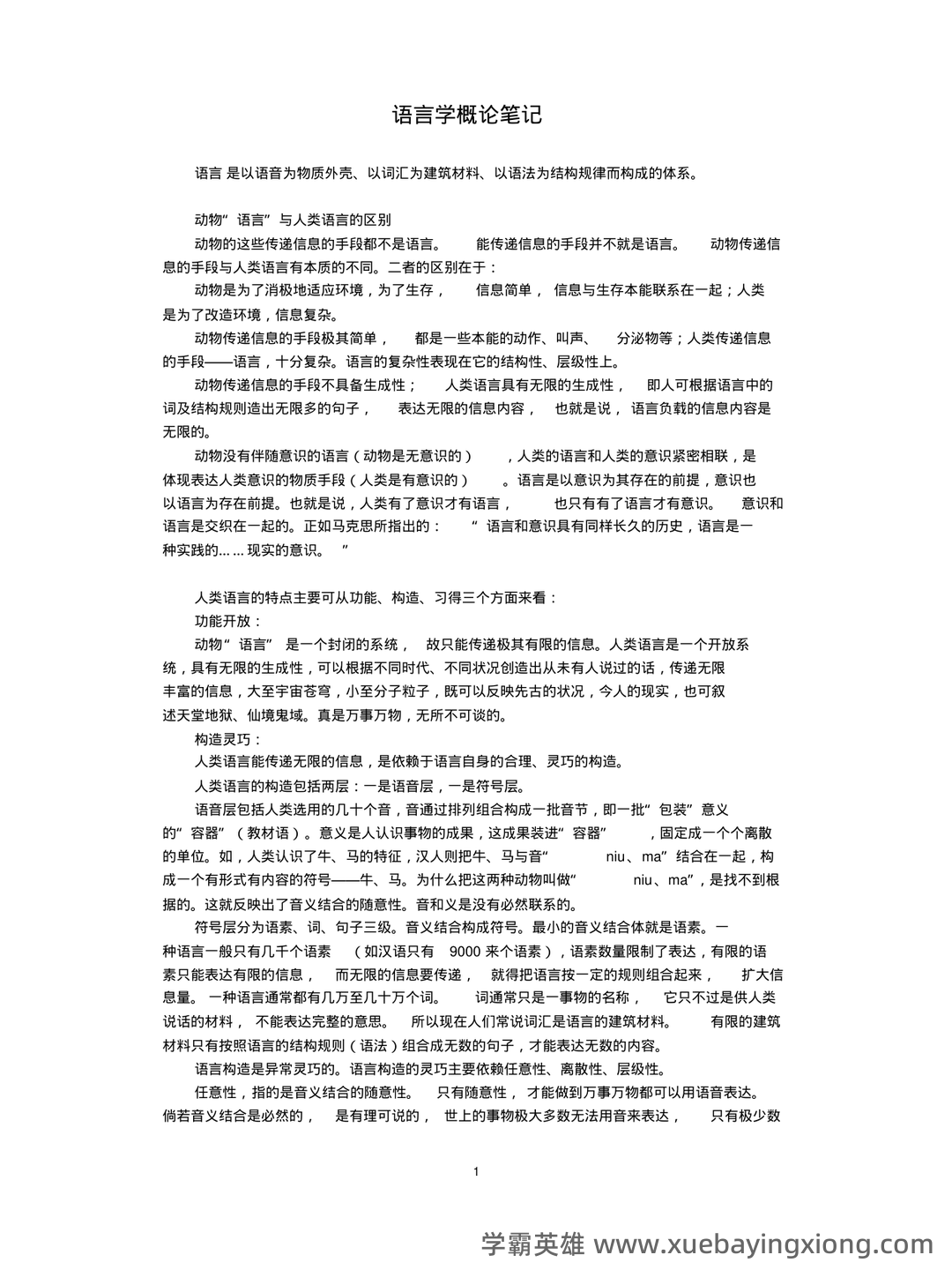
第 8 页 / 共 11 页
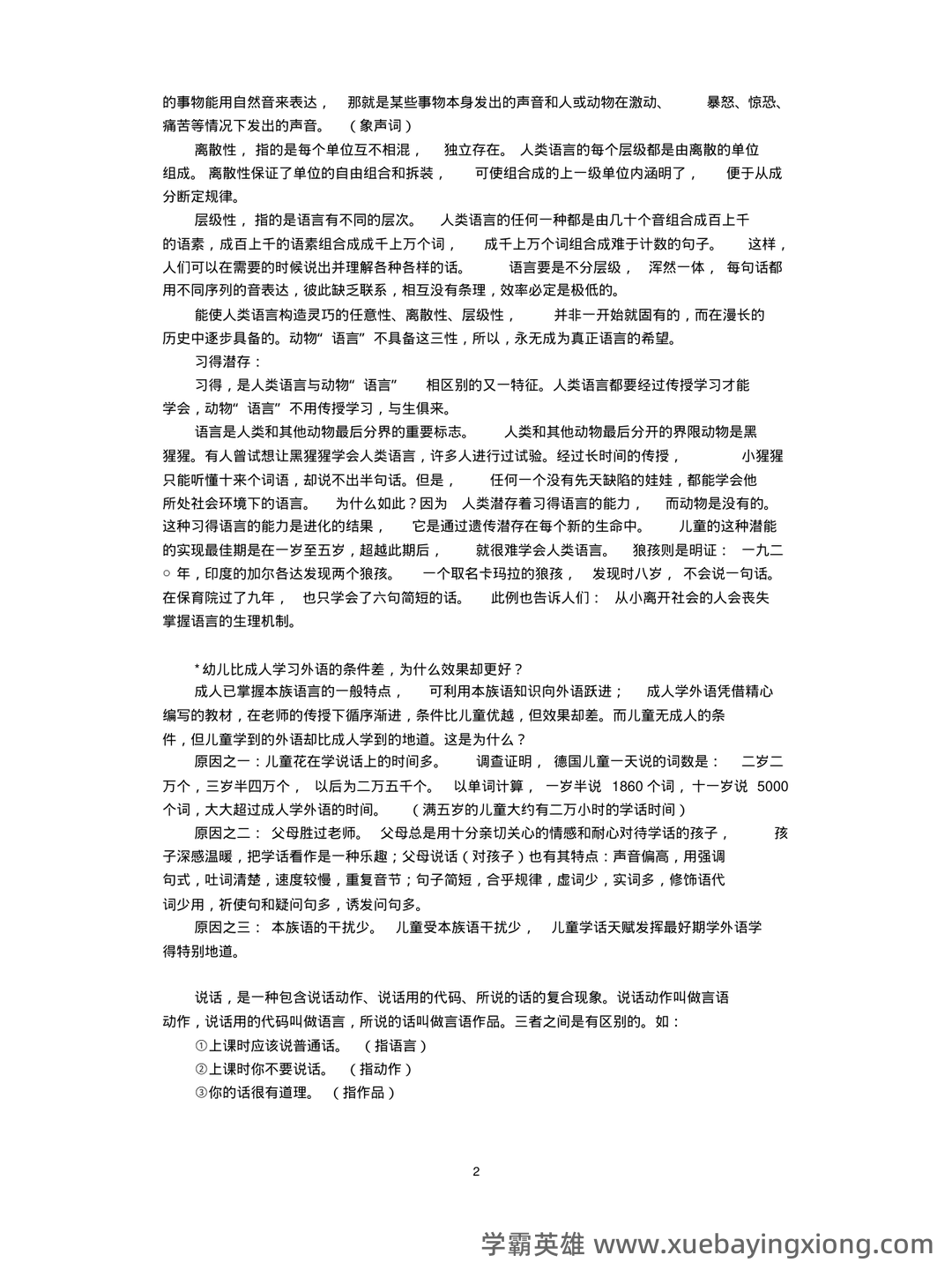
第 9 页 / 共 11 页
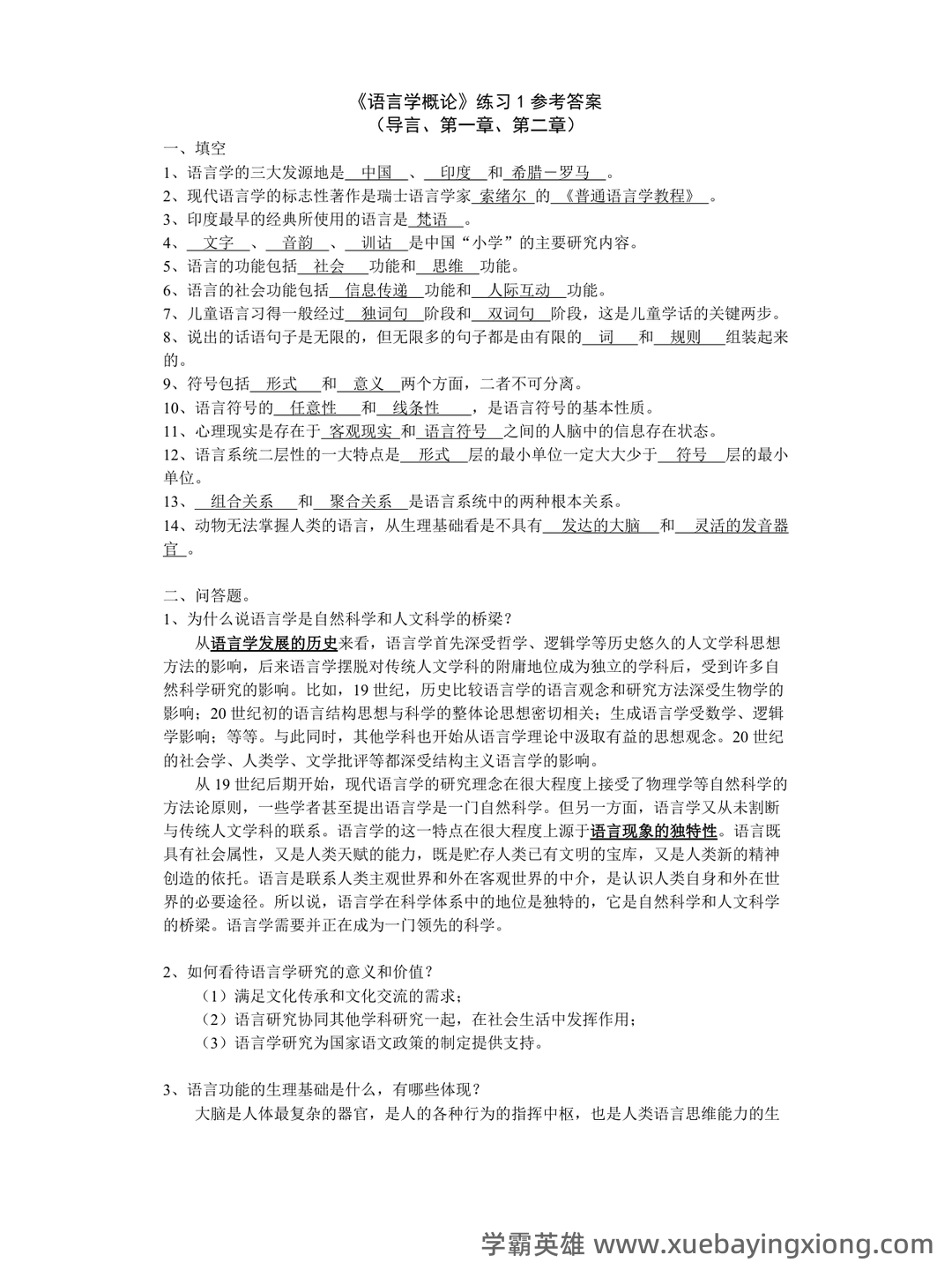
第 10 页 / 共 11 页
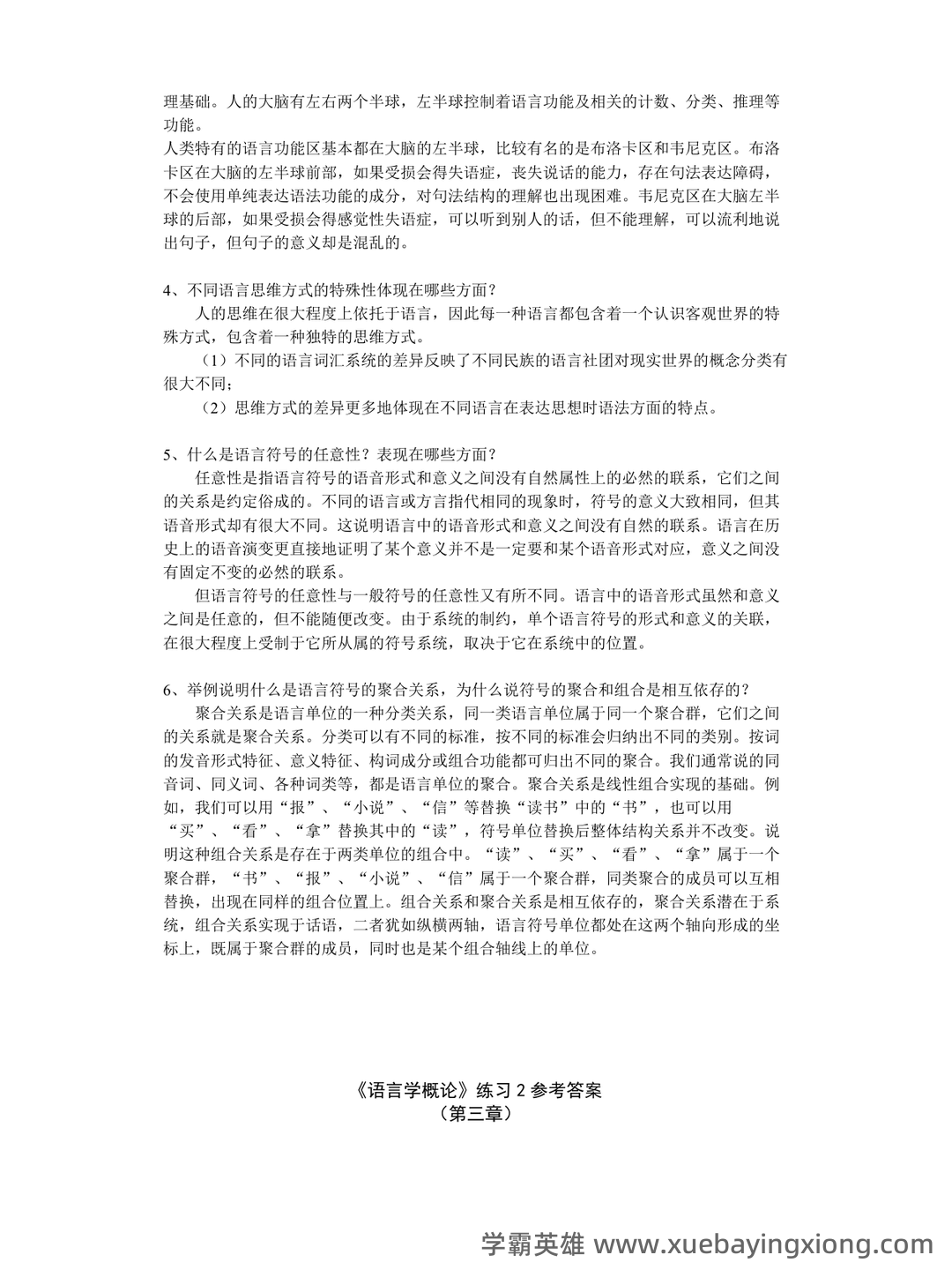
第 11 页 / 共 11 页
语言学概论名词解释汇总(英文)
Language Linguistics: A Concise Overview of Key Terms Language linguistics, at its core, is the scientific study of human language. It’s a surprisingly complex field, drawing on elements of psychology, sociology, anthropology, and even computer science. Essentially, it seeks to understand how we use language, why we use it the way we do, and the very nature of communication itself. As the search term “language linguistics: a general introduction” suggests, the field begins with fundamental concepts. One of the earliest divisions is between synchronic and diachronic linguistics. Synchronic linguistics examines language at a single point in time – like studying the grammar rules of English today. Diachronic linguistics, conversely, focuses on language change over time – how languages evolve, shift, and interact throughout history. This historical aspect is crucial for understanding the roots of modern languages. Then there's the debate between descriptive and theoretical linguistics. Descriptive linguistics primarily aims to accurately describe how language is actually used by speakers, often through detailed observation and analysis of naturally occurring speech. Theoretical linguistics, on the other hand, builds models and frameworks to explain the underlying mechanisms of language. Further key terms frequently arise, including phonetics (the study of speech sounds), phonology (the organization of sounds in a language), morphology (the study of word structure), syntax (the rules governing sentence structure), and semantics (the meaning of words and sentences). Understanding these foundational areas is the cornerstone of any serious exploration into the fascinating world of language. Finally, it's worth noting the increasing importance of pragmatics – the study of how context contributes to meaning. A sentence can have multiple interpretations depending on the speaker's intentions, the surrounding situation, and the shared knowledge between participants. Language isn’t just about the words themselves; it's about the use of those words.
展开
语言学概论
2025-08-02
38次阅读